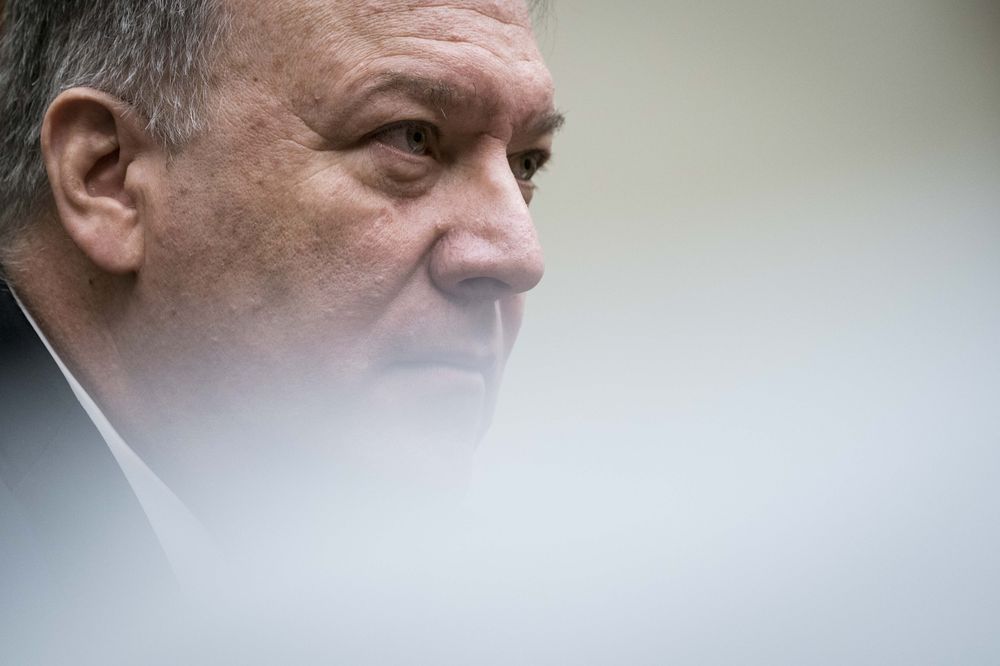Russia and China oppose US push for permanent arms embargo on Iran

A few minutes every morning is all you need.
Stay up to date on the world's Headlines and Human Stories. It's fun, it's factual, it's fluff-free.
Letters written on May 27 and June 7 by Russian Foreign Minister Sergey Lavrov and Chinese Foreign Minister Wang Yi respectively, were made public this week.
The letters called for “universal condemnation” of the United States motion to impose a permanent arms embargo against Iran and threats to trigger a “snapback” if denied. The existing arms embargo is set to expire in October of this year.
Writing to the now 15-member Security Council and United Nations (UN) chief Antonio Gutteres, Wang argued that the US “has no right to demand the Security Council invoke a snapback” following their 2018 withdrawal from the nuclear agreement – formally known as the Joint Comprehensive Plan of Action (JCPOA).
In the letter, Lavrov took a similar stance and called the Trump administration “ridiculous and irresponsible” due to their refusal to uphold original commitments under the 2015 JCPOA yet the desire to invoke member rights from the same deal. “This is absolutely unacceptable and serves only to recall the famous English proverb about having one’s cake and eating it,” he wrote.
The release of the letters come after US Ambassador to the UN, Kelly Craft announced at a press briefing last week that a draft resolution establishing a new arms embargo on Iran would be circulated “pretty soon.”
“What I say to people is on October 18 … do we want Russia selling weapons to Iran? Do we want China selling? Do we want anyone providing or selling weapons to Iran?” Craft asked. “I’m stressing that Russia and China need to join a global consensus on Iran’s conduct. This is about not only the people of Iran but the people in the Middle East.”
In the likely case of a veto, the US has also threatened to enact the snapback provision of Resolution 2231, which grants all listed participants of the JCPOA the ability to unilaterally reimpose all UN sanctions on Iran that were lifted or eased in the agreement. This move would extend the arms embargo indefinitely and cannot be vetoed.
The US defended its right to trigger the sanctions snapback because the 2015 resolution still names it as a participant.
However, Lavrov dismissed the US’ claims citing a 1971 International Court of Justice opinion, which states that “a party which disowns or does not fulfill its own obligations cannot be recognized as retaining the rights which it claims to derive from the relationship.”
He implored the US to stop undermining the UN resolution, saying that “the United States must recognize that there are neither legal nor other grounds for its policy of using Security Council mandates to pursue its own selfish interests.”
In 2018, the US withdrew from the JCPOA which sought to prevent Iran from developing nuclear weapons in exchange for relief from economic sanctions.
Trump labeled the accord carried forward from President Barack Obama’s presidency as “the worst deal ever,” then proceeded to impose an arms ban and an almost total economic embargo on Iran. The embargo includes sanctions on companies doing business with Iran, a ban on all imports originating from Iran and sanctions on Iranian financial institutions. In response, Iran started injecting uranium gas into more than a thousand centrifuges, violating JCPOA regulations.
The tit-for-tat move brought the member nations to a place before the existence of the JCPOA resolution.
The US’ permanent embargo proposition also comes after US President Donald Trump ordered the assassination of Major General Qasem Soleimani, the leader of the Quds Force, a unit of Iran’s Islamic Revolutionary Guard Corps (IRCG). Furthermore, both China and Russia have supplied military equipment to Iran with the sales and prospective deals with the Middle Eastern nation valued at billions of dollars.
Have a tip or story? Get in touch with our reporters at tips@themilsource.com




Comments ()